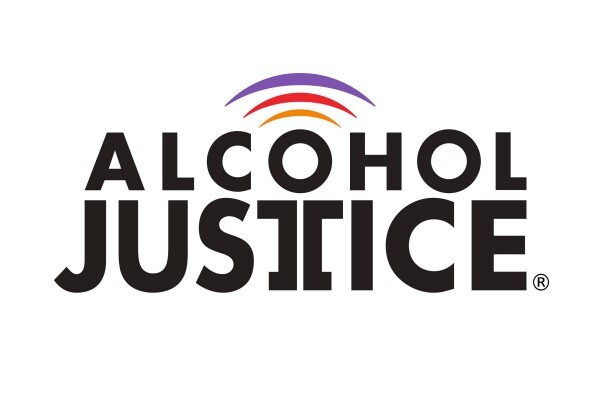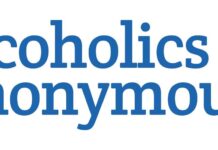Alcohol Justice and the California Alcohol Policy Alliance Stand with Statewide Allies to Say: There’s Never a Good Time for 4 A.M.
SAN RAFAEL, Calif., July 23, 2025 /PRNewswire-HISPANIC PR WIRE/ — In a victory for public health and prevention, California Assembly Bill AB 342 (Haney, D- San Francisco), the 4 A.M. Bar Bill, has stalled in committee. The bill would have gone against best practices in alcohol harm prevention by allowing any jurisdiction in California to extend weekend last call times to 4 A.M. without any obligation to offset the risks. While it had passed through the State Assembly, it faced public objection at every step. In recognition of community voices and the overwhelming research showing its impacts and costs, Senate GO Committee Chair Steve Padilla (D- San Diego) announced the bill had been pulled from consideration during the committee’s July 8 meeting. With the deadlines to move bills out of committee past, this year’s version of the bill seems to be dead.

“Every time we see a bill that endangers the public, we see coalitions form to stop it,” said Terry Cunningham, President of the Board of Alcohol Justice. “This year, Alcohol Justice was proud to work hand in hand with recovery groups, faith groups, leading lights in public health and public safety, and the lawmakers who stand by the science.”
AB 342 generated a storm of outrage among potentially affected residents. Since March of this year, 6,000 emails were sent to legislators via Alcohol Justice’s calls to action alone. The California Alcohol Policy Alliance, a coalition of over 50 public health and safety organizations from across the state, continued its staunch opposition as well. They were joined by local and state advocacy groups including the Health Officers Association of California, the California Council on Alcohol Problems, and the California Statewide Law Enforcement Association.
“For all of us who work to protect the public, there’s no choice but to oppose extended serving hours,” said Rob Lipton, Research and Development Director for Alcohol Justice. “The impact on crime, injury, crashes, and emergency services is well known. Helping a handful of private businesses never justifies causing so much pain to community members.”
According to the Community Guide, a CDC-compiled expert resource for prevention policy, last call times are essential to ensuring safe alcohol sales. The panel responsible for the guide noted that changes of 2 or more hours are clearly associated with increases in dangerous driving. Further research has tied late alcohol service to violence and crime, and a 2024 study out of Baltimore found that restricting hours in a heavily impacted neighborhood resulted in a 9% decrease in violent crime, 48% drop in homicides, and 31% drop in assaults.
“We look into peoples’ eyes to understand the harm,” said Lipton, “but we look at the streets to see the costs. We see these costs in hospital closures, ambulances not coming, bus lines cancelled, more wrecked cars, and downtowns emptied out of any business that isn’t a bar.”
Alcohol Justice, using methods developed by Emeryville’s Alcohol Research Group, developed a financial impact estimate for these harms. If just 1 in 20 bars statewide adopted 4 a.m. weekend closing times, the overall costs would exceed $2 billion over 5 years. These would come at a time where many cities are reporting crippling budget deficits—including $820 million for San Francisco and over $1 billion for Los Angeles—that are gutting the same public transit, healthcare, recovery, and community safety resources that would be strained by extended last calls.
“The costs are stark, and California cannot bear them,” said Miryom Yisrael, Chief Operating Officer for Alcohol Justice. “We will be stressing health and community support systems that are already near breaking. Worse, California would be doing this at a time when the federal government is dismantling the prevention, treatment, and recovery structures we depend on.”
This is not the first time the 4 A.M. bar bill has failed in the face of science and community outcry. At least 6 versions of the bill have been advanced in the past decade. California uses a 2-year legislative calendar, meaning the bill can be reintroduced next spring. Proponents do not always wait even that long, using a legislative maneuver known as “gut and amend” to attach the same language to a new bill number. This flawed, frequently criticized loophole helps lawmakers who know they have unpopular policies rush their bills through the deliberative process in hopes of leaving communities in the dark. For now, however, Alcohol Justice thanks the advocates and lawmakers who chose to do right by the state and vote no on AB 342.
“We see this same bad idea year after year,” said Terry Cunningham, President of the Board of Alcohol Justice. “But California will never lack smart, committed, and passionate residents. Once again, those people spoke up, and once again, power listened to the people.”
“We are thankful to the Chair Steve Padilla and Senate GO Committee members for prioritizing concerns to their constituency, public health, and public safety, and thus preserving the spirit of democracy,” said Raul Verdugo, Director of Advocacy for Alcohol Justice. “Our congratulations are to the members of the California Alcohol Policy Alliance and the many community members who stood up for themselves, their families, and their neighborhoods, as this bill would have a significant impact on all our lives.”
Alcohol Justice is a nonprofit based in San Rafael, California, dedicated to preventing the harms caused by alcohol and drugs. For more information, please see www.alcoholjustice.org.
CONTACT
[email protected]
(917) 426-6443
Logo – https://mma.prnewswire.com/media/147418/ALCOHOL_JUSTICE_LOGO_01.jpg
SOURCE Alcohol Justice





